

The Las Vegas Raiders were founded on January 30, 1960, as the Oakland Raiders. The team became a part of the American Football League (AFL), later merging with the NFL in 1970. The early years were marked by struggles with poor performance and attendance, finishing the inaugural season with a 6-8 record. However, the team's fortunes changed dramatically under the leadership of Al Davis, who took over as head coach in 1963. Davis introduced a bold offensive strategy known as the "vertical game" and began to shape the Raiders into a team defined by aggression and innovation. The team's first major success came in 1967 when they won the AFL Championship. This victory led them to Super Bowl II, though they were defeated by the Green Bay Packers. Despite the loss, the Raiders established themselves as a growing force in football. The franchise would continue to thrive in the 1970s, claiming their first Super Bowl title in 1976 and going on to secure two more championships in 1980 and 1983. The Raiders’ reputation for hard-hitting football, coupled with Davis's leadership, made them one of the most formidable teams of the era.
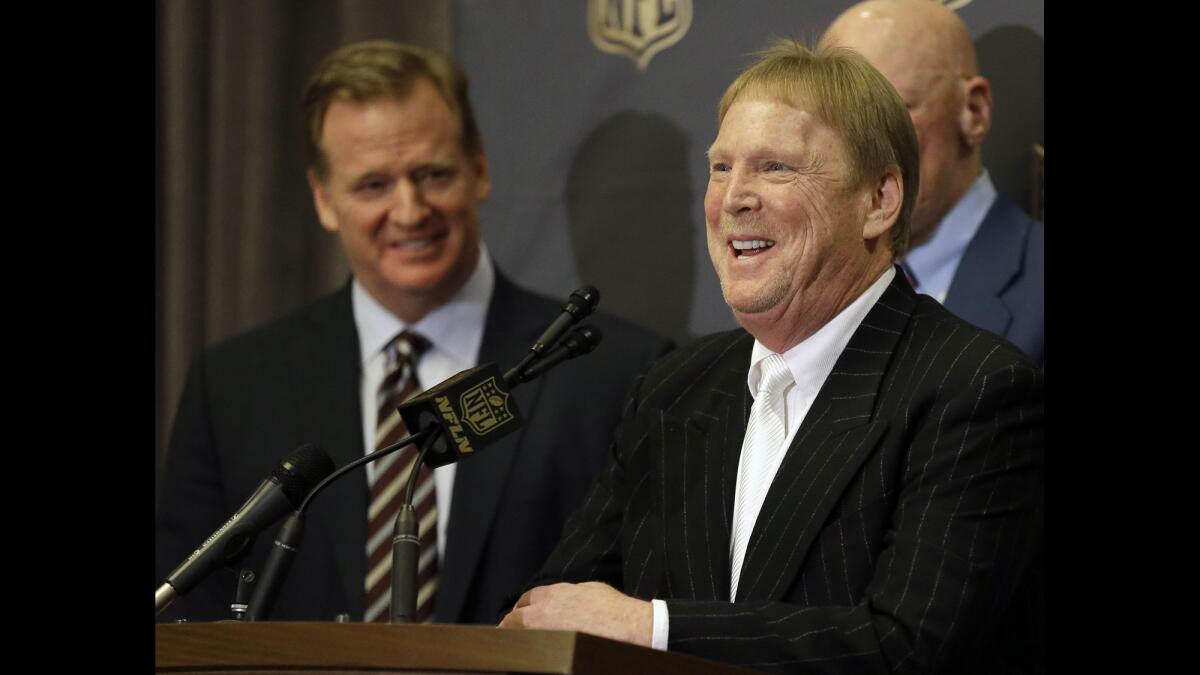
The Raiders have been under the ownership of the Davis family since their inception. Al Davis, who initially served as head coach and general manager, had a profound impact on the team's culture and success. Under his leadership, the team thrived, winning multiple Super Bowls and becoming an iconic figure in NFL history. Upon his death in 2011, ownership of the team passed to his son, Mark Davis, who currently serves as the team's managing general partner. Mark Davis took over at a time when the franchise was struggling, both on the field and off, but he quickly became focused on revitalising the team. Under his leadership, the team made the bold decision to relocate from Oakland to Las Vegas, a move that was officially approved by NFL owners in 2017. This shift to Las Vegas marked a new chapter for the Raiders, with new opportunities for growth in a major market. Over the years, the team has been led by a series of notable coaches, including John Madden, Tom Flores, and Jon Gruden, each of whom played a role in shaping the team’s legacy. More recently, the hiring of Pete Carroll in 2025 signals the team’s ambition to restore its competitive edge.

The Raiders have long been defined by their distinct team culture, which is built around toughness, resilience, and a rebellious spirit. One of the core components of this culture is Raider Nation, the passionate and loyal fan base that spans across the United States and beyond. Known for their loyalty and distinctive appearance, Raider fans are famous for wearing black and silver, with some even sporting elaborate face paint and costumes. The “Black Hole”, a section of the stadium traditionally reserved for the team’s most ardent supporters, became synonymous with the Raiders' intimidating presence, particularly during their years in Oakland. This fanbase, coupled with the team's rebellious persona, has helped shape the Raiders’ identity as a symbol of defiance and pride. The team’s motto, “Just Win, Baby”, coined by Al Davis, encapsulates the Raiders' no-nonsense, competitive mindset. The franchise is also known for its success in crafting dominant defenses and powerful offenses, particularly in the 1970s and 1980s, when figures like Ken Stabler, Marcus Allen, and Tim Brown became household names. The Raiders’ consistent success throughout various eras of football is not only a testament to their talent on the field but also to their deep-rooted culture of excellence, innovation, and fearlessness.
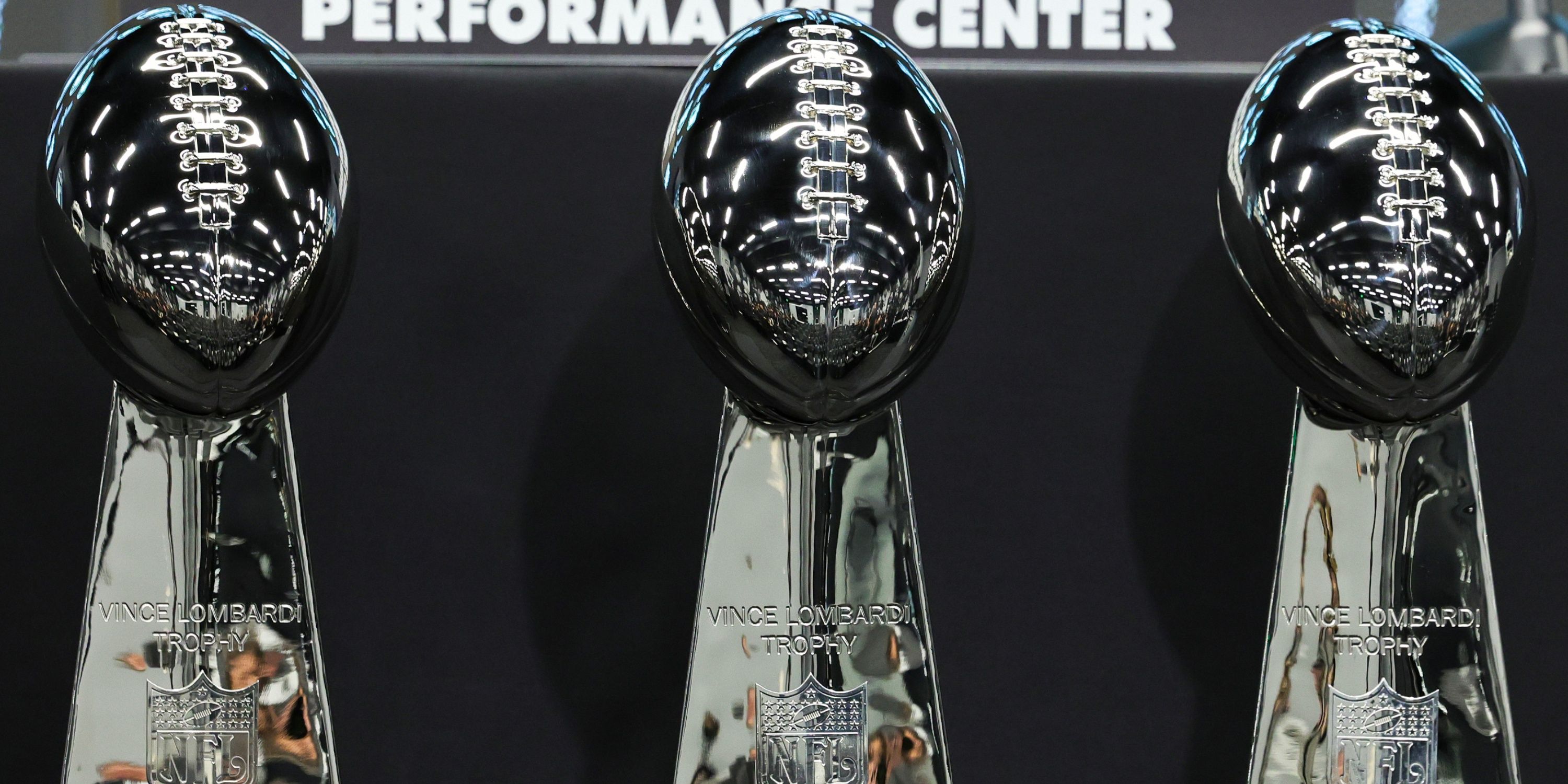
The Raiders have achieved remarkable success throughout their history, particularly during their formative years in the 1970s and 1980s. They won three Super Bowls (Super Bowl XI in 1976, Super Bowl XV in 1980, and Super Bowl XVIII in 1983), establishing themselves as one of the premier teams of the era. During the 1970s, under the leadership of coach John Madden, the Raiders developed a reputation for their tough, physical style of play, particularly on defense. The team’s success was built around the likes of Ken Stabler, Fred Biletnikoff, Howie Long, and Gene Upshaw, all of whom became NFL legends. Their triumph in Super Bowl XI, where they defeated the Minnesota Vikings, cemented their place in history as one of the NFL's elite teams. Throughout the decades, the Raiders maintained a competitive edge, winning four AFC Championships and 15 division titles, a testament to the franchise's consistency and dominance in the league. In addition to these team successes, the Raiders have also produced numerous Hall of Fame players, with 17 former players and coaches inducted into the Pro Football Hall of Fame, including Al Davis, John Madden, and Marcus Allen. This sustained success, both on the field and off, has earned the Raiders a prominent place in NFL history.

The Raiders’ home has changed several times throughout the franchise’s history. From their original home at Kezar Stadium in San Francisco, to Oakland Coliseum in the 1960s, and the Los Angeles Memorial Coliseum during their time in Los Angeles, the Raiders have always played in iconic venues. However, the franchise’s most recent move to Allegiant Stadium in Paradise, Nevada, marks a new era for the team. Opened in 2020, Allegiant Stadium is a state-of-the-art, domed facility that is shared with the UNLV Rebels football team. The venue is designed to provide a modern, high-tech experience for fans and players alike, with a seating capacity of 65,000 and world-class amenities. The move to Las Vegas and the opening of Allegiant Stadium has provided the Raiders with the opportunity to engage a larger fanbase, capitalising on the growing sports market in the city. It has also solidified the Raiders' position as a major sports entity in one of the most dynamic and entertainment-driven cities in the world. With this new infrastructure, the team is positioned for long-term success both on and off the field.
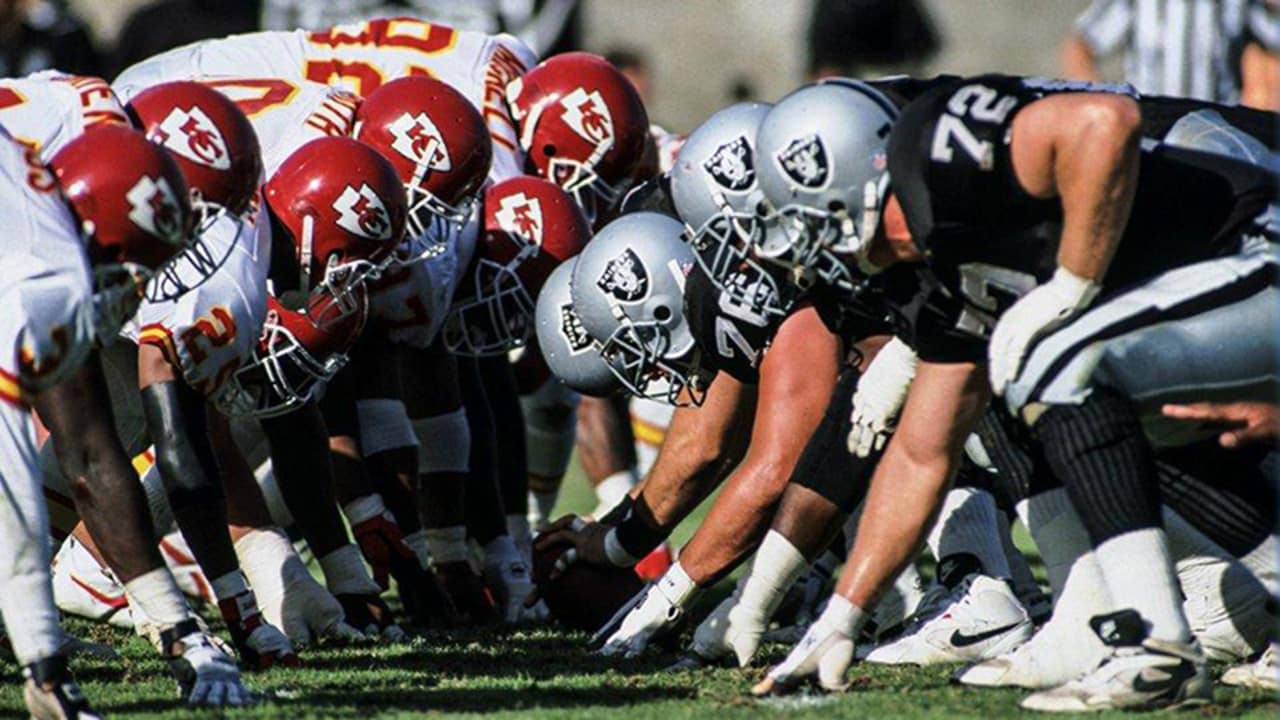
The Raiders have developed intense rivalries throughout their history, particularly within the AFC West division. Their longstanding rivalry with the Kansas City Chiefs is one of the most iconic in NFL history, dating back to their AFL days. The rivalry is marked by hard-fought games and high stakes, with both teams often competing for supremacy in the division. The Denver Broncos and Los Angeles Chargers are also considered key divisional rivals, with the Raiders having a fierce competition for AFC West titles. Another historic rivalry exists with the Pittsburgh Steelers, dating back to the 1970s, when the teams faced off regularly in playoff matchups, including a series of AFC Championship games. This rivalry is known for its brutal, physical style of play, often featuring late hits and controversial moments, such as the “Immaculate Reception” game in 1972. The Raiders' rivalries have played a central role in shaping the team’s identity, contributing to their reputation for toughness and resilience. The fierce competition and passionate fanbase fuel the Raiders’ competitive spirit, making each matchup with these teams particularly intense and important.
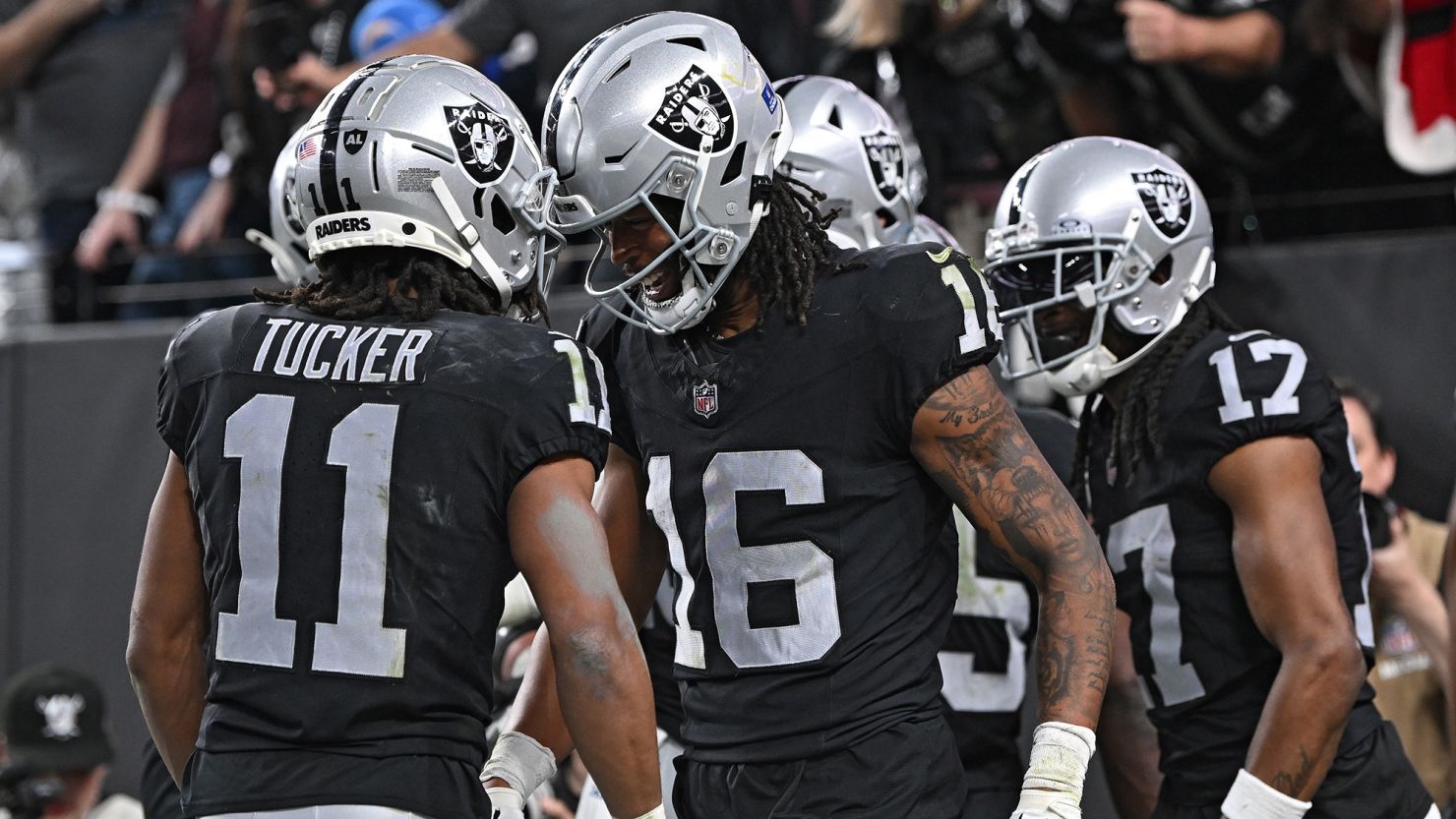
The Raiders’ performance in recent years has been a mix of progress and setbacks. After relocating to Las Vegas in 2020, the team faced a series of challenges, including the effects of the COVID-19 pandemic and the difficulty of adjusting to a new market. Despite these hurdles, the team showed signs of growth under Jon Gruden, though his tenure was marred by off-field controversies and coaching changes. In 2023, the Raiders parted ways with Gruden and hired Josh McDaniels as head coach, but his tenure was also cut short, leading to the appointment of Antonio Pierce as interim head coach. Although the Raiders finished the season with an 8-9 record, they showed flashes of promise, particularly with standout performances from players like Josh Jacobs and Davante Adams. The franchise continues to strive for consistency and success, focusing on building a competitive team through smart drafting and player acquisitions. The hiring of Pete Carroll in 2025 signals the team’s commitment to turning things around, with hopes of returning to playoff contention and challenging for a Super Bowl in the near future.

The Raiders’ fanbase, known as Raider Nation, is one of the most passionate and dedicated in the NFL. Fans of the team are known for their loyalty, unique style, and relentless support, no matter the team’s performance. The “Black Hole”, a section of the stadium known for its rowdy, energetic supporters, became a symbol of the Raiders' intimidating presence in Oakland. Even with the move to Las Vegas, Raider Nation continues to be a driving force behind the team's success, with fans in every corner of the globe. The culture of the Raiders is steeped in Al Davis’s legacy, which emphasized “Commitment to Excellence,” and the team’s identity remains rooted in their tough, rebellious persona. Raider Nation’s love for the team transcends geography, with fans often traveling great distances to support their team. This global support is reflected in the team’s community outreach programs, fan engagement efforts, and presence on social media. The Raiders have cultivated a fanbase that is not only committed to the team’s success but also to upholding the legacy of one of the NFL's most iconic franchises.

The Raiders were founded as part of the American Football League (AFL), one of the two leagues that would later merge into the NFL. In their inaugural season in 1960, the Raiders struggled with performance and attendance, finishing with a 6-8 record. However, the team quickly found its feet, especially under the leadership of Al Davis, who became the team's head coach in 1963.
Davis’s leadership saw the team shift its offensive strategies, adopting the “vertical game,” a style of aggressive, deep passing plays that became a hallmark of the Raiders. Davis's influence not only helped the team win but also established the Raiders' identity as a tough, relentless, and innovative team. Under Davis, the Raiders began their rise, earning their first AFL Championship in 1967 and qualifying for the Super Bowl, although they lost to the Green Bay Packers in Super Bowl II.

The 1970s were a golden era for the Raiders, with Davis at the helm both as coach and general manager. The team joined the NFL in the AFL-NFL merger in 1970 and immediately became a force in the league. The Raiders won their first Super Bowl (Super Bowl XI) in 1976, defeating the Minnesota Vikings 32-14. This victory marked the beginning of the Raiders’ success, securing their place in NFL history.
The Raiders continued their dominance in the 1980s, winning Super Bowl XV (1980) and Super Bowl XVIII (1983), adding to their championship legacy. Throughout this period, the Raiders were known for their hard-hitting defense and powerful offense, and players like Ken Stabler, Marcus Allen, Howie Long, and Fred Biletnikoff became legends of the game. Under coach John Madden, the Raiders established a reputation for their toughness and innovative play.
/cdn.vox-cdn.com/uploads/chorus_image/image/66813294/451233574.jpg.0.jpg)
In 1982, the Raiders made a controversial move to Los Angeles, where they played until 1994. The team’s move was the result of a dispute with Oakland over stadium conditions. In Los Angeles, the Raiders’ popularity soared, and they won their third Super Bowl (Super Bowl XVIII) in 1983, defeating the Washington Redskins 38-9.
However, after a turbulent period and declining attendance in the 1990s, the team returned to Oakland in 1995. The relocation marked the end of their time in Los Angeles and the beginning of a new chapter in their history. Despite several successful seasons, including a division title and an appearance in the AFC Championship in 2000, the team faced challenges both on and off the field.
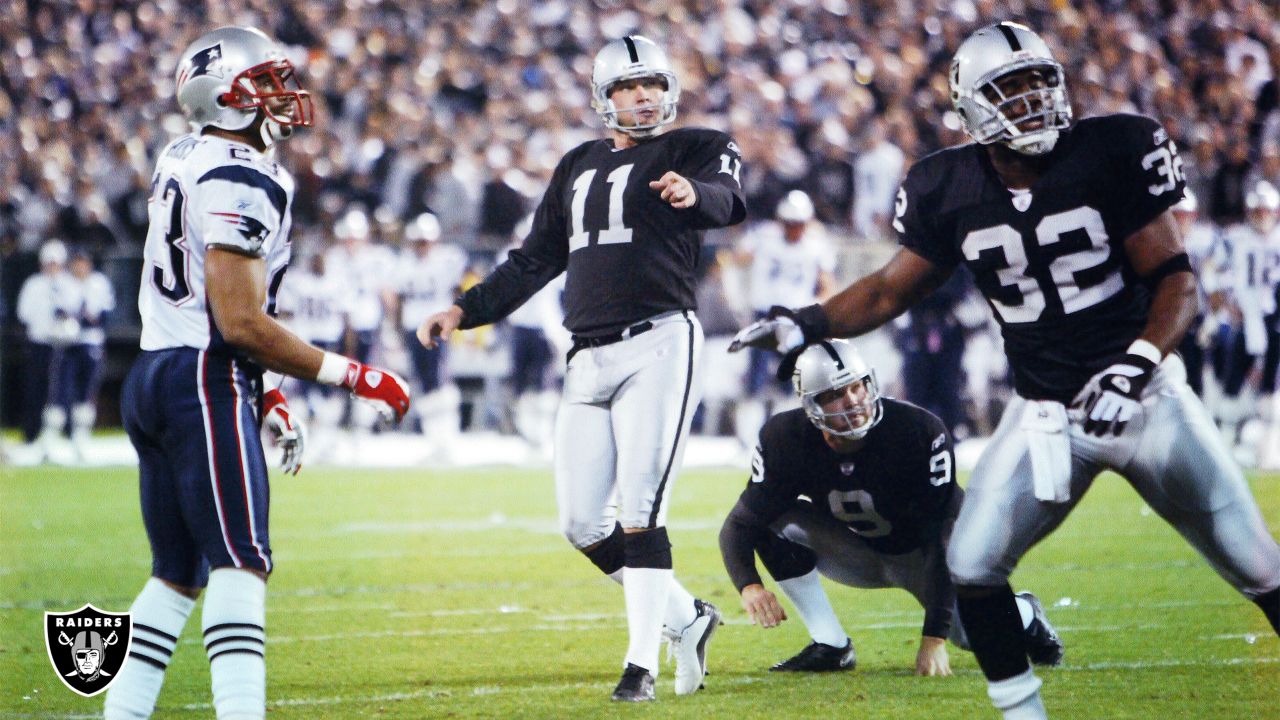
The 2000s were a mixed period for the Raiders, with high expectations but inconsistent results. In 2002, the team had one of its best seasons, winning the AFC Championship and advancing to Super Bowl XXXVII. However, they were defeated by the Tampa Bay Buccaneers in a crushing 48-21 loss.
After this Super Bowl appearance, the Raiders experienced several seasons of mediocrity and missed playoff opportunities. The franchise went through numerous head coaches, including Bill Callahan, Norv Turner, Art Shell, and Lane Kiffin, but struggled to recapture its former glory. The team’s fortunes continued to dip with poor drafts, and the team finished under .500 for several seasons, prompting another era of rebuilding.

In 2017, after years of speculation about the Raiders’ future, the team was granted approval to relocate to Las Vegas, marking another historic chapter in the franchise’s story. The NFL owners voted overwhelmingly in favor of the move, with the Raiders officially making Las Vegas their new home in 2020.
The Raiders’ relocation to Las Vegas was more than just a change of location; it was a strategic move to tap into a growing sports market and a fresh start for the team. With the opening of Allegiant Stadium in Paradise, Nevada, the Raiders had a state-of-the-art facility that helped revitalize the franchise. This move also brought the Raiders into a major media market, helping to boost their popularity and financial stability.
Despite some struggles on the field in the first few years after the relocation, the Raiders have remained a competitive team under head coach Jon Gruden (hired in 2018). The 2020 season was particularly challenging, as the team dealt with the COVID-19 pandemic, but the move to Las Vegas rejuvenated the franchise’s fortunes, marking a new era.

In 2024, the Raiders hired Antonio Pierce as head coach following the firing of Josh McDaniels. Pierce’s appointment marked a renewed sense of direction for the team as it aimed to build a more cohesive and competitive squad. Despite challenges in the 2023-2024 season, including a lackluster performance and a coaching change, the Raiders are positioning themselves for future success with a talented roster and a leadership team committed to improvement.
With the franchise firmly rooted in Las Vegas, the Raiders look forward to adding new chapters to their storied history. The team aims to restore its former glory, build on its legendary past, and ultimately compete for another Super Bowl under the bright lights of their new home.
The Las Vegas Raiders are owned by Mark Davis, who inherited the team from his father, Al Davis, following his passing in 2011. Al Davis was one of the most influential figures in NFL history, known for his rebellious spirit, relentless pursuit of excellence, and innovation. He was pivotal in shaping the Raiders' identity as a team that defied conventions, and under his leadership, the franchise achieved great success, including three Super Bowl championships (XI, XV, XVIII) and numerous playoff appearances.
Mark Davis, who had a background in business and marketing, took over ownership of the team with a goal to continue his father’s legacy while adapting to the evolving landscape of professional football. He remains committed to keeping the Raiders competitive and maintaining the deep connection between the team and the passionate Raider Nation fanbase. Despite being less publicly visible than his father, Mark Davis has emphasized modernizing the team's operations and embracing the opportunities that come with the franchise’s relocation to Las Vegas. He also made a landmark decision in 2024 by selling 15% of the team to outside investors, a move that altered the capital structure of the Raiders.
Davis’s majority control remains intact, and he is known for his dedication to keeping the Raiders’ culture alive while bringing in fresh perspectives for growth. The ownership structure is a limited partnership, where Mark Davis holds the largest share of the team, and his family continues to play an active role in the operation of the franchise.

The Raiders' staff comprises a diverse range of individuals who contribute to both the football operations and the business side of the team. The organization is led by Mark Davis, who oversees the team’s strategic direction. The football operations side is managed by Champ Kelly, the General Manager, who handles all player acquisitions, contract negotiations, and roster decisions. Kelly is responsible for building a competitive roster and working closely with the coaching staff to achieve on-field success.
Antonio Pierce, the Head Coach, was appointed in 2024 after the dismissal of Josh McDaniels. Pierce, a former player and coach with a reputation for leadership and player development, is tasked with bringing stability to the Raiders' coaching staff and leading the team back to playoff contention. Under Pierce, the team is expected to develop a strong defense, with a focus on discipline and teamwork.
Supporting Pierce are key assistant coaches, including Chip Kelly (Offensive Coordinator), Patrick Graham (Defensive Coordinator), and other position coaches responsible for player development across various departments. The team also has a dedicated medical and support staff that manages player health, recovery, and performance.
On the business side, the Raiders employ an extensive network of executives who manage operations such as marketing, sponsorships, and community engagement. Notable positions include Sandra Douglass Morgan, the team's President, who oversees the organization’s business strategy and public relations efforts, ensuring the franchise maintains a strong presence in the Las Vegas market.
The staff structure ensures a division of labour that allows for effective communication between the football operations and business side, with regular collaboration between executives and coaches to ensure the Raiders’ goals are aligned both on and off the field.

The Raiders’ operational structure is centralized around the ownership and the roles of key executives and staff members. Mark Davis, as the principal owner, holds ultimate control over all franchise decisions, with a small circle of trusted advisors. However, he also relies on professional football executives and coaches to manage day-to-day operations, ensuring that the football side of the business runs smoothly.
The General Manager, Champ Kelly, oversees the roster management and player scouting, working closely with Antonio Pierce (the Head Coach) to implement team strategies and player development. Together, they form the backbone of the Raiders’ football operations, ensuring that the team’s success is not only measured in terms of wins and losses but also in how well the players evolve within the Raiders’ system.
On the business side, the President of the team, Sandra Douglass Morgan, is responsible for leading the franchise’s marketing, sponsorships, and fan engagement strategies. The team works hard to create a powerful connection with Raider Nation while capitalizing on the opportunities in Las Vegas. The franchise has adopted a top-down approach, with clear leadership channels ensuring the team and business operations are aligned in their pursuit of success.

The financial situation of the Las Vegas Raiders has evolved significantly since the franchise’s move to Las Vegas. As of 2023, the Raiders are valued at $3.5 billion, a significant increase from their previous valuation, and they are considered one of the most valuable franchises in the NFL. The team generates substantial revenue through a combination of ticket sales, sponsorships, merchandise, and broadcasting rights.
The Allegiant Stadium, which serves as the team’s home, has been a major driver of financial growth. As one of the most advanced and well-equipped stadiums in the NFL, Allegiant Stadium offers the Raiders ample opportunities for non-football-related revenue generation, such as concerts, events, and corporate partnerships. The Raiders have also secured lucrative deals with corporate sponsors, enhancing their revenue streams and boosting their financial standing in the league.
In 2024, the Raiders made a significant move by selling a 15% ownership stake to external private equity investors. Tom Brady, the former NFL quarterback, purchased 10% of the franchise in partnership with Tom Wagner of Knighthead Capital. The sale, valued at $220 million, helped raise the franchise’s market value, which was estimated to be $3.5 billion post-deal. This transaction provided the Raiders with capital to support future investments in the team, while also bringing in external expertise from Brady and his partners.
While the Raiders have a strong financial foundation, Mark Davis has emphasized the importance of smart financial planning, as the franchise is still adjusting to its new home in Las Vegas. Financial flexibility is key, as the Raiders continue to reinvest in the team’s infrastructure, coaching staff, and roster to stay competitive in the NFL.

The Raiders’ infrastructure is built around their state-of-the-art Allegiant Stadium in Paradise, Nevada, which opened in 2020. The stadium, designed to accommodate 65,000 fans, features advanced technology, luxury suites, and a fully equipped training facility. Allegiant Stadium serves as the heart of the Raiders’ operations, providing an excellent venue for the team’s home games, community events, and concerts. It also acts as a source of significant revenue generation through ticket sales, sponsorships, and other commercial opportunities.
The franchise has a well-equipped training facility located in Henderson, Nevada, where the team’s athletes can focus on their fitness, rehabilitation, and game preparations. This facility supports the players’ day-to-day needs, helping to enhance their performance both on and off the field.
Furthermore, the Raiders’ infrastructure includes a robust scouting system and a network of offices dedicated to player development, medical care, and team strategy. The team also invests heavily in fan engagement platforms, such as digital content and social media, to keep Raider Nation connected, particularly as the team solidifies its presence in Las Vegas.
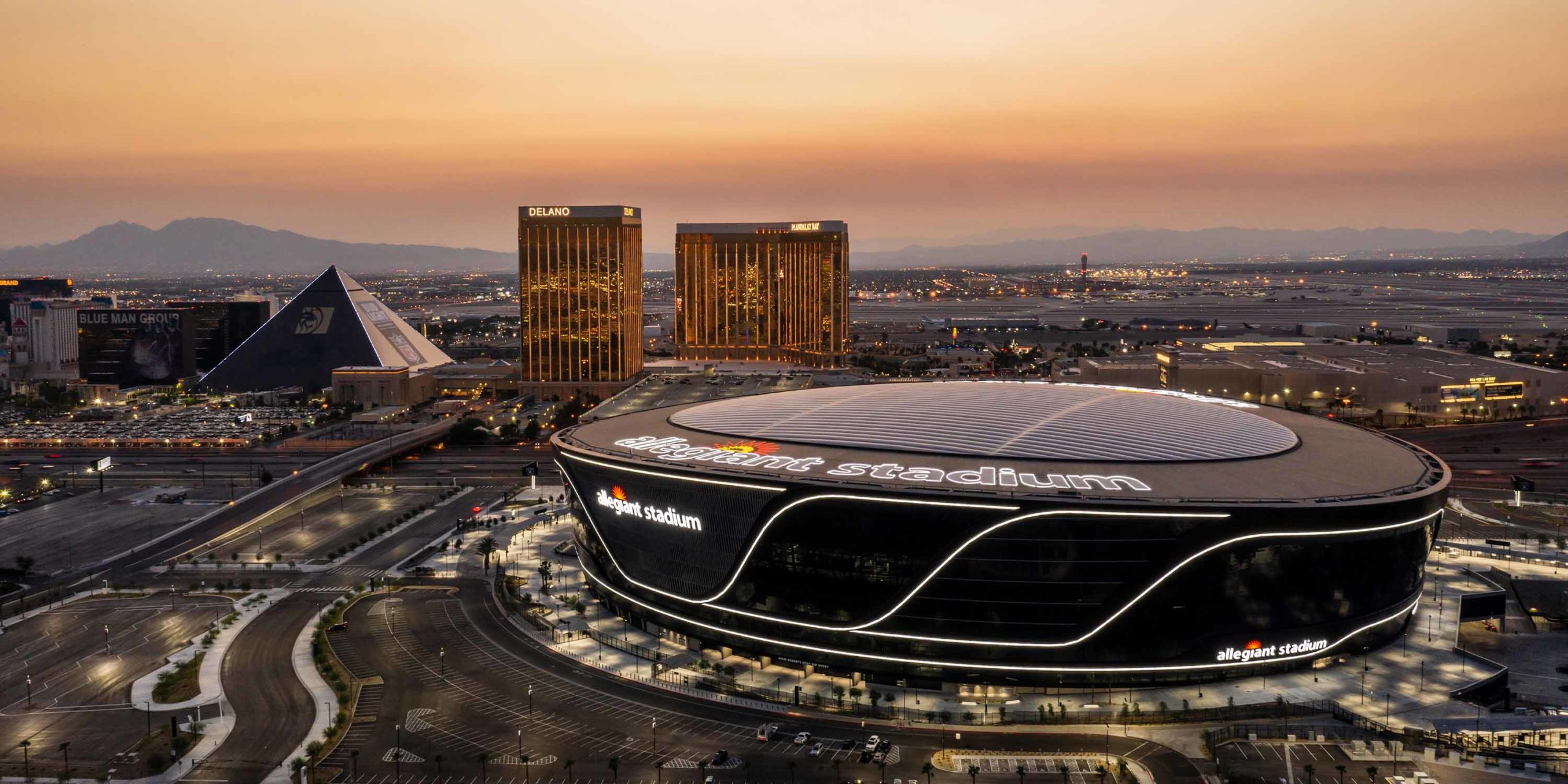
The Las Vegas Raiders have several overarching goals for their future. The primary goal is to achieve sustained success on the field, with a focus on building a championship-contending roster year after year. The team’s management is committed to adapting its strategies based on the evolving dynamics of the NFL, with a particular emphasis on developing younger talent and maintaining a competitive edge in the AFC West division.
Beyond on-field performance, the Raiders aim to build a lasting legacy in Las Vegas by connecting deeply with their new home city. Mark Davis and his leadership team are focused on growing the fanbase and enhancing the stadium experience for fans, both at home and in the stadium. A major part of this vision involves strengthening ties with the Raider Nation by enhancing the fan experience through innovative marketing, community outreach, and exclusive events.
The franchise also aims to become a more financially secure and sustainable organization, leveraging its new Las Vegas location to maximize revenue streams and create more opportunities for investment in team development. By expanding the team’s media presence and building partnerships with key stakeholders, the Raiders intend to solidify their place as a top-tier NFL franchise while staying competitive on the field.
Books:
Websites:
Articles:
Interviews and Documentaries:


Becoming a leading global provider of digital solutions and services for the sports industry, enabling our clients to achieve their goals and reach their full potential.
We aspire to be a trusted partner and advisor to our clients, leveraging our expertise and passion for sports to help them succeed in a rapidly changing market.








